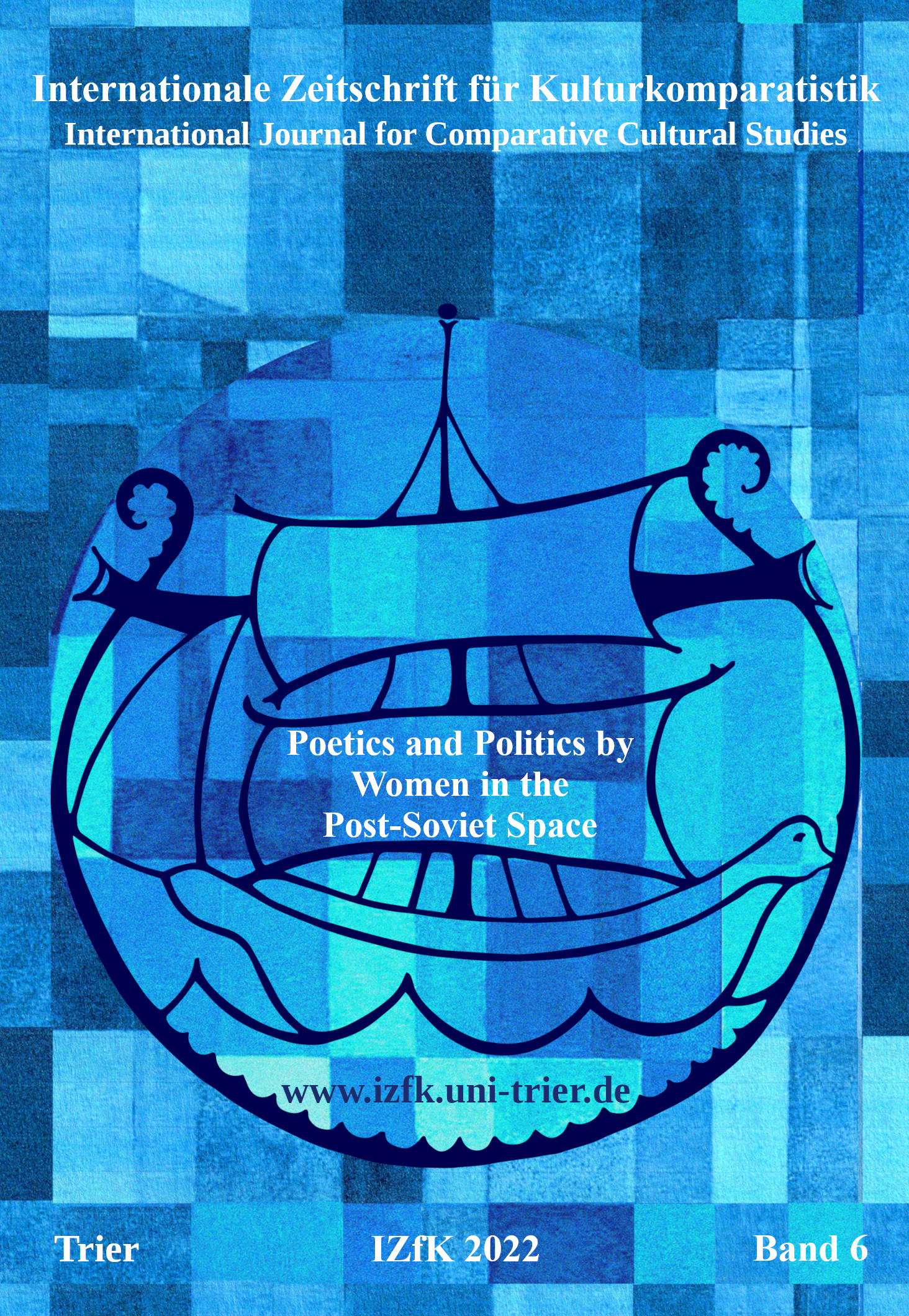Feministisches Schreiben und politischer Protest im postsowjetischen Raum
Hauptsächlicher Artikelinhalt
Abstract
This article examines the interrelation of contemporary Russian feminist poetry and political activism. Recent protest movements in the post-Soviet space demonstrate that female activists play major roles in all aspects of social transformation. While this had not yet become as clear in the case of Russia, a growing movement of young feminist and queer writers are giving voice to the suppressed through poetry. This article investigates this movement by tracing the development of the feminist network assembled around the internet platform “F-pisʼmo,” which has existed since 2017. Through political activism, festivals, creative writing courses, and the online-publication of poetry, prose, and philosophical essays on gender issues, the organizers and participants in the network engage the subaltern in empowering practices in order to undermine and transform the conservative and patriarchal social order of post-Soviet Russia. Analysis of one of the most powerful and controversial poems of this sort, “Moja vagina” (My vagina) by Galina Rymbu, demonstrates the political impact of feminist poetry in Russia and its link to US-American feminist discourse. It is argued that the method of political activism practiced by Russian feminist poets today can be described as speaking and acting through poetry in the sense of Hannah Arendtʼs political theory of the vita activa.

